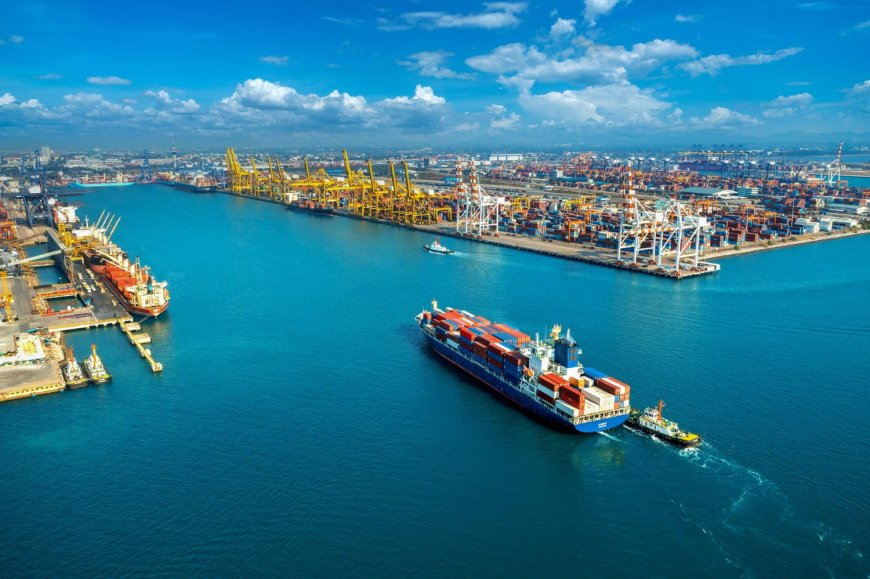Cargo by Sea A Comprehensive Guide to International Shipping

Shipping cargo by sea has been one of the most reliable and cost-effective ways to transport goods across the globe. Whether you're shipping bulk products, heavy machinery, or containers filled with various items, Cargo by sea offers distinct advantages, especially for long-distance international shipping. This method is ideal for large shipments that don’t need to arrive immediately, allowing businesses and individuals to send goods across oceans efficiently.
The Process of Shipping Cargo by Sea
Shipping cargo by sea involves several steps, beginning with the collection of goods and ending with their delivery at the final port. Here’s a general outline of the process:
-
Booking and Documentation: The first step involves booking your shipment with a reliable shipping company and ensuring all the necessary documents are in order, such as the Bill of Lading (BOL), commercial invoice, and any other required customs paperwork.
-
Containerization: Depending on the type and size of the cargo, it will be packed into containers. Larger items may require specialized containers to ensure they’re transported securely.
-
Transport to the Port: Once the goods are packed and ready, they are transported to the port, where they will be loaded onto a vessel.
-
Sea Transport: The cargo is then shipped to its destination port by sea. This part of the journey can take anywhere from a few days to several weeks, depending on the distance and weather conditions.
-
Customs Clearance: Upon arrival at the destination port, your cargo will go through customs. Customs clearance is an essential process, ensuring that all necessary duties and taxes are paid before the goods can be released.
-
Delivery: After clearing customs, the cargo is transported to its final destination, which could be a warehouse or a distribution center.
Advantages of Cargo by Sea
There are many reasons why businesses and individuals continue to rely on cargo by sea for international shipping. Here are the key benefits:
-
Cost-Effective: Sea shipping is often much cheaper compared to air freight, especially when transporting large or heavy shipments. This makes it an ideal option for companies looking to save on logistics costs.
-
Capacity: Ships can carry a large volume of cargo, allowing for the shipment of diverse goods in bulk. This is especially beneficial for industries such as agriculture, construction, and manufacturing.
-
Environmental Impact: Compared to air freight, cargo by sea has a lower carbon footprint, making it a more environmentally friendly shipping option.
-
Global Reach: With ports around the world, shipping by sea offers access to nearly every country, making it an essential method for global trade.
Choosing the Right Shipping Method for Your Cargo
While cargo by sea is ideal for many types of shipments, it's important to evaluate the specific needs of your cargo before making a decision. For urgent shipments, air freight may be the better option, as sea transport is slower. However, for non-perishable goods or large shipments that are not time-sensitive, sea shipping provides an efficient, budget-friendly choice.
Common Types of Cargo Transported by Sea
- Containerized Cargo: Standardized containers are used to transport goods of all types, from electronics to furniture.
- Bulk Cargo: This includes items like grains, coal, and oil, which are typically shipped in large quantities without packaging.
- Breakbulk Cargo: Items that don’t fit into standard containers, such as large machinery, vehicles, and construction equipment.
Tips for a Smooth Shipping Experience
-
Choose a Reliable Shipping Partner: Ensure you work with a reputable company experienced in sea cargo transport. Their expertise will help streamline the process and ensure your goods are delivered safely.
-
Understand the Costs: Sea shipping can be more affordable, but there may be additional costs involved, such as loading and unloading fees, insurance, and customs duties. Make sure you get a full breakdown of all charges.
-
Plan Ahead: Sea transport can take longer than air freight, so make sure you plan your shipment in advance to avoid delays.
-
Track Your Cargo: Many shipping companies offer tracking services that allow you to monitor your cargo's progress throughout the journey. This gives you peace of mind and ensures transparency.
Conclusion
Shipping cargo by sea remains one of the most reliable and affordable methods for international trade and transport. Whether you're moving large quantities of goods or just need a cost-effective shipping solution, sea freight offers several benefits, from cost savings to environmental advantages. By understanding the process and choosing the right shipping partner, you can ensure that your cargo arrives at its destination efficiently and safely.
What's Your Reaction?






















